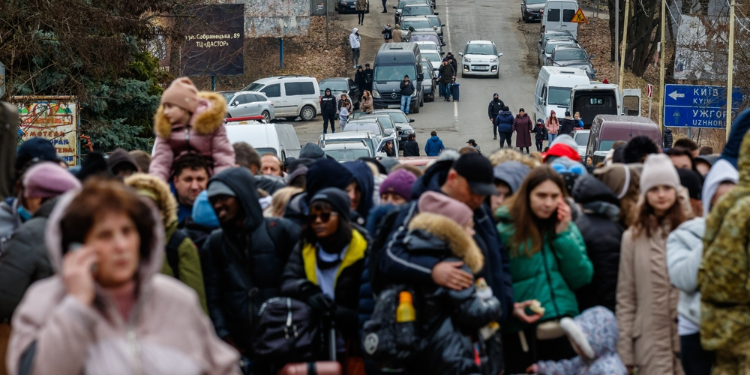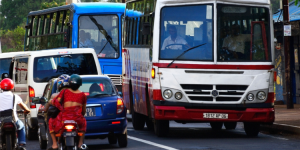
The war in Ukraine with Russia shelling in urban and rural areas all over the country has obliged nationals and expats to seek asylum for their security. But, the humanitarian crisis that has already been challenging for locals has put a spotlight on alleged discrimination. The concern: immigrants from Africa and other people of colour are facing hate at the borders.
According to the UN, so far, about 3 million people have left Ukraine, and they expect a bigger number within the next months. It is the largest number of refugees since the second world war. Ukraine's refugees are crossing to neighbouring countries to the west, such as Poland, Romania, Slovakia, Hungary, and Moldova.
Discrimination: media and international borders
Ukrainians are mostly white, and that fact has highlighted discrimination within the media coverage and also at borders against black expats living in Ukraine. “This is a relatively civilized, relatively European – I have to choose those words carefully, too – city, one where you wouldn't expect that, or hope that it's going to happen”, said CBS News senior foreign correspondent Charlie D'Agata on covering Ukraine. Also, the BBC interviewed a former deputy prosecutor general of Ukraine, who told the network: “It's very emotional for me because I see European people with blue eyes and blond hair … being killed every day.” On France's BFM TV, journalist Phillipe Corbé stated this about Ukraine: “We're not talking here about Syrians fleeing the bombing of the Syrian regime backed by Putin. We're talking about Europeans living in cars that look like ours to save their lives.” There are several examples of racist coverage, mostly comparing Ukrainian refugees as 'civilized' for the colour of their skin with Afghanistan and Syrian "the others" who can naturally suffer the consequences of war.
Expats experience
In the same way, black expats who live in Ukraine are facing discrimination while trying to seek asylum. A report by The Guardian UK shows that more than 500 international students are trapped in Sumy, a town 40 km from Ukraine's northeast border, and most of them are from African countries, especially from Nigeria, Morocco, Tanzania, Congo, but also from India, among other countries. A Nigerian medical student, Oluwaseun Adefemi, who arrived in Sumy in January, revealed that food and water supplies were already running low, adding it was no longer safe to go to local stores.
International students are living in fear. Recently, Shivangi Shibu shared a video from her university hostel window of what she said was an airstrike over Sumy. It shows a flash of stark light in the distance. "Electricity is gone," she wrote in the video's caption.
The United Nations has admitted that some non-European refugees have faced discrimination trying to flee to safety at Ukraine's borders after their experiences were dismissed as lies and "Russian disinformation" by online commentators.
Filippo Grandi, the UN High Commissioner for Refugees, acknowledged their plight during a press conference in the first week of March.
“They have seen reports in the media that they are treated differently, as Ukrainians and non-Ukrainians. Now we've made our observations, and we may not be able to look at every post yet, but our observations are that these are not state policies, but there are cases where it has happened," he said.
In the United States, the accusations of discrimination have got the attention of the National Association for the Advancement of Colored People and the National Urban League, which signed a letter to the president of the European Union calling for fair and humane treatment for all.
One student from Ghana described what she saw and experienced in Ukraine to CBS News. " Mostly they would, they would consider White people first. White people first, Indian people, Arabic people before Black people,” said Ethel Ansaeh Otto.
Another international student from Morocco said: "We went to the train station, and they will not let us in. And when they did let us in, they were like, 'You have to give us money because this is, this is not for free for you because you are foreign. This is not free for you," said Selma El Alaui to a CBS report.
Ukraine's Minister of Foreign Affairs, Dmytro Kuleba, tweeted a video in early March saying an emergency hotline had been established specifically for African, Asian, and other students wishing to leave Ukraine.



















